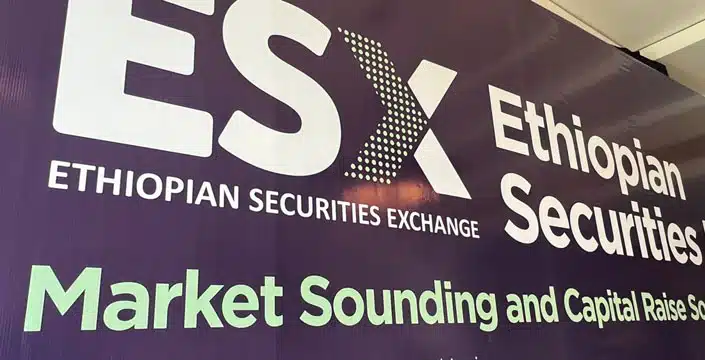On Friday, Prime Minister Dr Abiy Ahmed presided over a colourful celebration marking the launch of the Ethiopian Securities Exchange (ESX).
The exchange which was established by Ethiopia Investment Holdings (EIH), the nation’s sovereign wealth fund, in collaboration with the Ministry of Finance and FSD Africa, represents a significant turning point in Ethiopia’s economic growth
ESX is poised to transform the country’s capital markets after receiving a licence from the Ethiopian Capital Market Authority in December 2024 to function as a Securities Exchange and Over the Counter (OTC) market.
Read also: National Bank of Ethiopia raise credit growth cap to 18% amid declining inflation
With a forecast GDP growth of 6.5 in 2025, Ethiopia is the second most populated country in Africa and one of the fastest-growing economies in the world. It seeks to encourage private sector growth in Ethiopia by improving liquidity and granting equal access to finance.
In the absence of the ESX
For many years, Ethiopia’s financial industry lacked a robust system for providing the private sector with fair access to capital and liquidity.
Specifically, banks have been unable to efficiently lend to one another due to the absence of an interbank trading platform.
High interest rates for borrowers and serious inefficiencies in bank liquidity management were the outcomes, which in turn put pressure on businesses, especially small and medium-sized firms (SMEs).
Addressing the problems created by the absence of the ESX
This problem is already being addressed by the new exchange. The exchange’s interbank trading platform is enhancing credit flow and optimising liquidity in the banking sector.
The platform has enabled transactions of more than ETB 135 billion (USD 1.1 billion) since its launch in late October 2024, indicating a strong uptake by the banking industry.
The platform is already boosting credit accessibility for businesses, allowing them to expand, innovate, and stimulate economic activity by improving price transparency and lowering transaction costs.
In addition to supporting more efficient issuance and trading of financial instruments like stocks, corporate bonds, treasury bills and bonds, commercial papers, reports, and derivatives, ESX’s cutting-edge multi-asset Electronic Trading Platform will be integrated with a contemporary Central Securities Depository for post-trade settlement and clearing.
It is anticipated that this will draw in both foreign and indigenous investors, bolstering Ethiopia’s financial markets even more.
Read also: Ethiopia launches first Sharia-compliant digital financing service with Ansar platform
Ethiopian Securities Exchange’s CEO expresses optimism
Tilahun Esmael Kassahun, CEO of ESX, expressed optimism that the new exchange will boost economic activity and expand the debt market in particular, which would benefit all ecosystem participants.
He said, “We see the new securities exchange as a multi-faceted financial infrastructure, providing multiple markets and a variety of products, catering for different types of issuers and investors. The Fixed income market will provide a platform to list and trade debt instruments, including treasury bills and bonds, corporate bonds and Shariah-compliant securities such as Sukuk Bonds.”
On his part, FSD Africa CEO Mark Napier underscored the role of modern and deep capital markets in accelerating the already impressive economic growth momentum of Ethiopia.
“The launch of the ESX is a true game-changer for the country. As an organiaation running development finance programmes in well over thirty African countries, we know only too well the impact well-functioning and modern capital markets can have in catalysing economic growth. We are proud to have played a role in the development of this exchange, which will undoubtedly spur equity, fixed income and other innovative financial instruments,” noted Mark.
The introduction of ESX comes after Ethiopia implemented several important economic changes in the previous year, such as floating the Birr, the country’s currency, allowing international competition in the banking industry, and promoting the growth of the capital market.
The exchange has the potential to develop into a crucial venue for capital raising, securities trading, and economic reform.





Leave a Reply